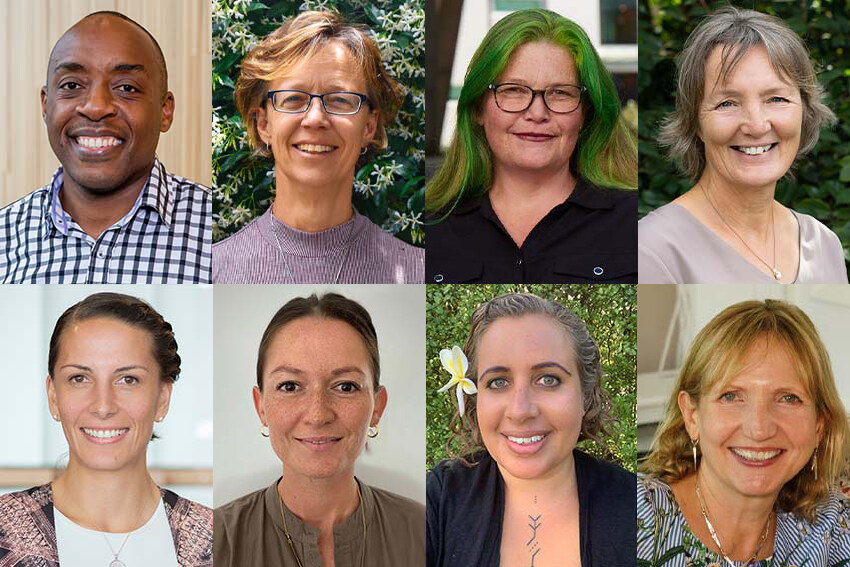

Researchers from across AUT have received a $1,364,660 grant from the Health Research Council (HRC) to collaborate with Ngā Maia Māori Midwives Aotearoa, Pasifika Midwives Aotearoa, and the New Zealand College of Midwives to investigate sustainability challenges in community-based midwifery.
The Business School’s Dr Tago Mharapara (Management) leads an interdisciplinary team of researchers who will investigate how community midwives and their whānau manage the disruptive nature of community-based midwifery work and its impact on the future of the workforce.
The team includes researchers from Management and Employment Relations (Dr Nimbus Staniland, Associate Professor Katherine Ravenswood, Professor Gill Kirton) and Midwifery (Drs Janine Clemons and Lesley Dixon, Mrs Stacey Gillard-Tito, Ms Talei Jackson).
Ensuring the sustainability of the midwifery profession is significant for Aotearoa given a projected increase in demand for community-based midwives over the next decade, as well as a comparatively small Māori and Pasifika midwifery workforce that is very much in demand. Evidence suggests that this cohort faces a high risk of burnout.
While existing research demonstrates significantly better health outcomes for women, birthing people, and children receiving personalised care from community-based midwives, little is known about the impact of such an intensive-care model for the wellbeing of midwives and their own families. Uncertainty, disruption, and adaptation are common aspects of community-based midwifery work, and midwives often balance work requirements against personal and whānau needs.
Key to this project are specific research streams that focus on Māori and Pasifika midwives. Midwives’ experiences in both urban and rural settings will also be investigated.
Dr Mharapara says the funding support will help the team gain important insights into the lives of community-based midwives – particularly those who are working in the demanding context of a global health pandemic.
“New Zealand’s midwifery workforce is under extreme pressure, and there is an urgent need to understand and improve how midwives are supported and encouraged to remain in midwifery. This project is relevant to the changing landscape of our national health service delivery to meet the needs of families at a local level and so we expect the reforms will spotlight services like community-based midwifery,” says Dr Clemons.
The research team extends its gratitude to AUT’s New Zealand Work Research Institute; Faculty of Business, Economics and Law; Faculty of Health and Environmental Sciences; Research and Innovation Office; and several colleagues who provided guidance and support throughout the grant application process.






































